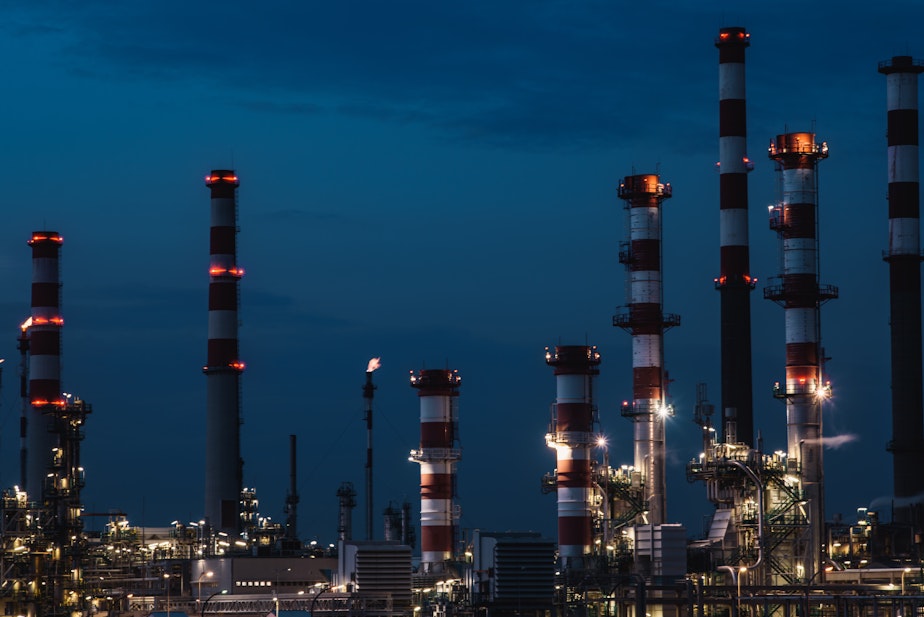The future of Washington state's carbon auction may come down to gas prices

Washington state Republicans hope you'll think about high gas prices when you vote this fall.
A GOP-backed initiative to repeal the Climate Commitment Act, which charges companies for emitting carbon into the atmosphere, is likely headed to your November ballot.
Republicans argue it’s a misguided policy that’s been too painful for average Washingtonians filling their tanks.
Democrats in Olympia are now racing to smooth out rough edges on Gov. Jay Inslee's signature environmental law, like those pesky high carbon auction prices. They’re making a case to save the law which they argue is a necessary tool to help combat climate change.
The 2023 carbon auction brought in $1.8 billion in its first year. The price for allowances was considerably more than in California, which has had a cap and trade program since 2012.
Sponsored
"Washington is trimming its carbon emissions at about twice the rate that California is," said freelance reporter John Stang, who has been covering the issue for Crosscut and Net Zero Insider.
"Our carbon emissions reduction goals are far more aggressive than those in California. And just the ripple effect from there has led to higher auction prices, which has led to higher than expected prices at the pump," Stang said.
The price behind a gallon of gas, however, is a complex web of factors, including real estate prices, geopolitical events, and supply chain issues.
Regardless, the carbon auction will have an impact on gas prices.
"Putting a price on carbon is going to raise the price of carbon," said environmental economist Yoram Bauman.
Sponsored
Estimates of how much the law has contributed to high gas prices range anywhere from 20 to 50 cents per gallon.
Ranking member of the House Environment and Energy Committee, Rep. Mary Dye (R-Pomeroy), co-sponsored a bill to provide rebates for car owners in Washington.
"We've been strongly adamant that [the Climate Commitment Act] would impact people's budgets, their utility bills, that it would raise food prices, that it would raise the cost of home heating," Dye said. "It's hurt every single family in every single family's budget in the state of Washington."
Democrats are trying to shore up the Climate Commitment Act before voters weigh in on the law.
They are looking at linking the state's carbon auction with California and Quebec and mandating more transparency for oil companies around fuel prices.
Sponsored
Democrats are also making the case for the benefits of the auction — the money raised goes to transportation projects and mitigating the effects of climate change.
Listen to Soundside’s full conversation with John Stang, Rep. Mary Dye, and Yoram Bauman by clicking the play icon at the top of this story.





